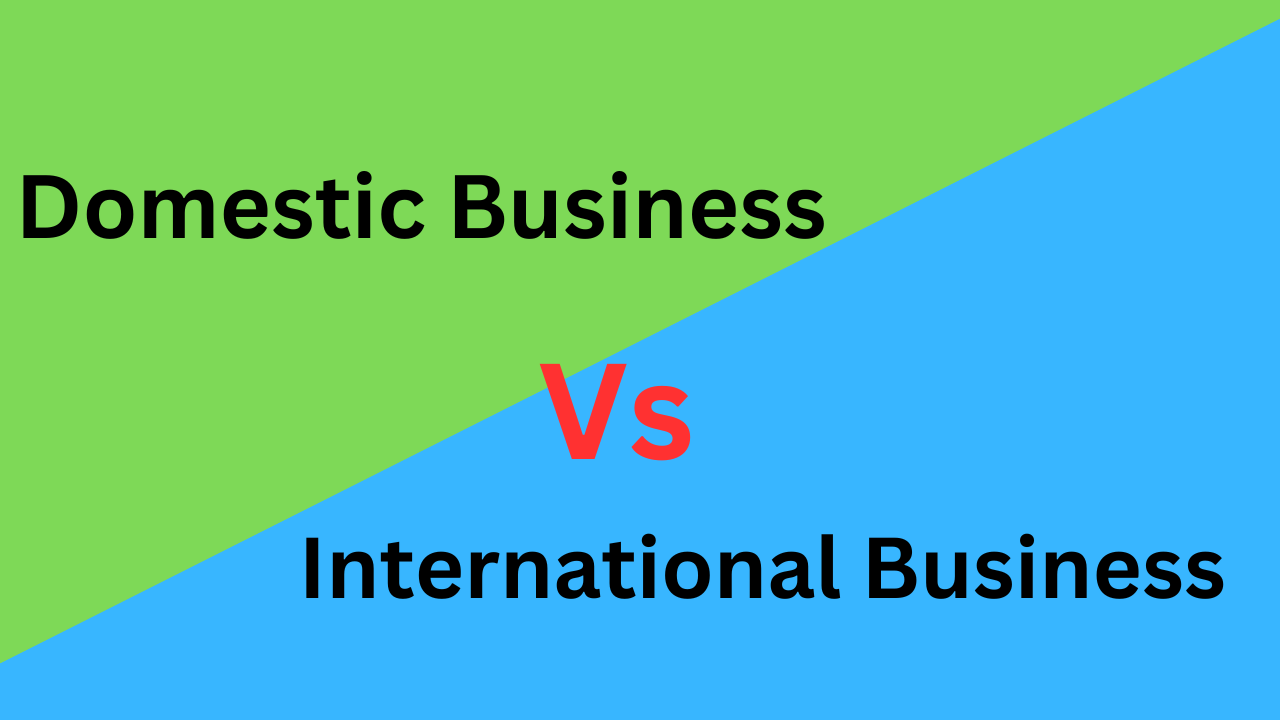
Key Differences Between Domestic and International Business
- by Pankaj
To put it simply, a domestic business operates within the confines of a single country, while an international business extends its reach across multiple countries. However, this fundamental distinction goes beyond mere geographical presence. Understanding the key differences between domestic and international business is crucial for grasping how each type operates. Let’s dive into these differences to get a clearer picture.
What Is Considered a Domestic Business?
A domestic business functions entirely within the borders of one country. This type of business manages all aspects of its operations, including transactions, production and management, within that single country. For instance, a bakery in Italy that sells bread only to local customers is a prime example of a domestic business. Operating domestically offers benefits such as simplified logistics, reduced regulatory hurdles and a better understanding of the local market. This focus allows businesses to cater more effectively to the needs of their home country within a familiar legal and economic framework.
And What Exactly Is an International Business?
International business, on the other hand, involves operations that extend beyond national borders. This encompasses activities such as global production, resource management and market engagement. Take a global technology company like Apple, which sources components and assembles products in various countries. While international business presents challenges, it also offers substantial advantages, including access to larger markets, diverse resources and potential cost reductions through global strategies.
Differences Between Domestic and International Business

Scope of Operation
Domestic businesses are confined to a single country, managing production, marketing and sales within national borders. In contrast, international businesses operate across multiple countries, which involves complex coordination and management. For example, a multinational corporation with factories in China and the UK and a headquarters in the US, must navigate a complex web of logistics.
Market Research and Customer Diversity
Market research for domestic businesses is generally simpler and more cost-effective due to a more homogeneous customer base. Conversely, international businesses face challenges such as language barriers and cultural differences, requiring extensive and expensive market research. Understanding global consumer behavior is crucial for effective international marketing strategies.
Legal and Regulatory Environment
Domestic businesses adhere to the laws of one country, dealing with employment regulations, tax laws and other legal matters within a consistent framework. International businesses, however, must navigate the legal systems of multiple countries, including trade restrictions and employment laws, which can be complex and varied. A business practice that is standard in one country might be illegal in another, creating significant risks.
Economic Factors and Currency
Domestic businesses operate within a single national economy and currency, simplifying economic planning and financial transactions. International businesses must manage multiple currencies and adapt to varying economic conditions in different countries. This exposure to foreign exchange risks can lead to potential financial losses, requiring adeptness at predicting global economic trends.
Capital and Resource Requirements
Domestic businesses typically require less capital compared to international businesses, as they operate within a narrower economic scope. International businesses often face higher initial investments and operational costs due to the need to establish branches, manufacturing plants, or local offices across multiple countries.
Quality Standards and Consumer Expectations
Domestic businesses must meet national quality standards, which may differ from international standards. International businesses need to adhere to global quality standards and comply with regulations in each market they serve. This means adapting to diverse consumer expectations, which can vary significantly from one country to another.
Risk Exposure
Domestic businesses manage risks within a local socio-economic and political context, such as economic downturns or regulatory changes. International businesses, however, face a broader range of risks, including political instability, financial volatility and complex cross-border legal issues. Effective risk management strategies are essential for navigating these challenges.
Final Thoughts
By now, you should have a clearer understanding of the differences between domestic and international business. Each type of business operates under distinct conditions, with its own set of opportunities and challenges. Recognizing these differences can help businesses better navigate their operational landscapes and strategize for success. We hope this overview has clarified the distinctions and provided valuable insights. See you in the next post!
To put it simply, a domestic business operates within the confines of a single country, while an international business extends its reach across multiple countries. However, this fundamental distinction goes beyond mere geographical presence. Understanding the key differences between domestic and international business is crucial for grasping how each type operates. Let’s dive into these…
